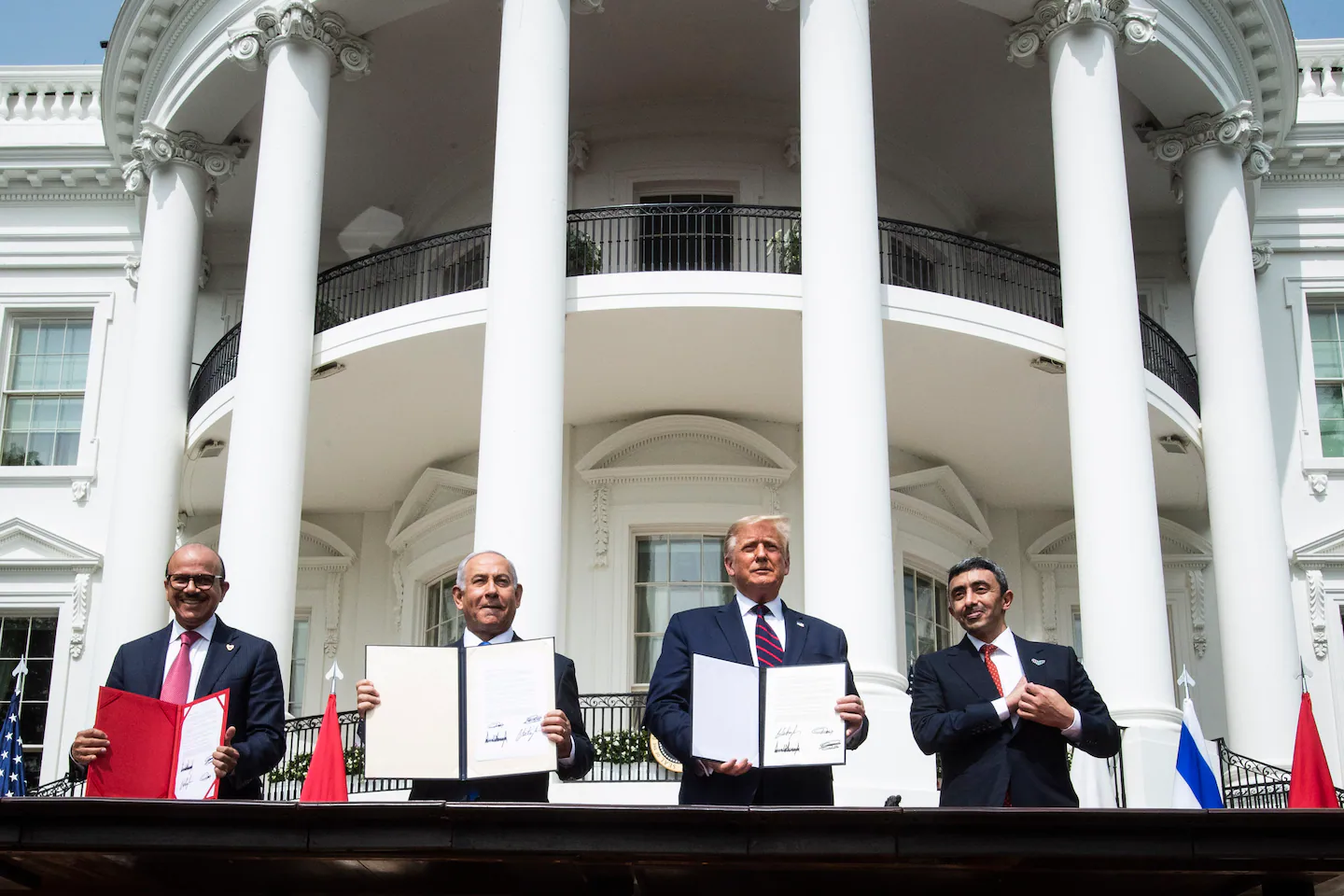
The Abraham Accords were more than just a diplomatic breakthrough; they represented a deliberate strategic choice to pursue a new path — one that advances our shared interests. Normalization with the UAE and Bahrain has cultivated a new regional mind-set. Suspicion gave way to understanding, pessimism shifted to optimism, and conflict transformed into cooperation.
The impact was immediate: booming trade and investment, joint ventures, medical collaborations, academic partnerships, direct flights carrying droves of tourists and professionals, and friendships formed across borders. Morocco soon joined the circle of normalization, demonstrating that the accords could extend beyond the Gulf.
Quiet contacts evolved into open diplomacy, with the establishment of new embassies and regular ministerial visits. Israel and its partners now engage directly on shared regional challenges, from Iran’s destabilizing activities to the fight against violent extremism.
But history does not move in a straight line. On Oct. 7, 2023, Hamas launched a brutal attack on Israel, marking the deadliest day in Israel’s history. The horror of that day scarred every Israeli family, and its effects were felt in Jewish communities worldwide. Besides the terror inflicted on our people, Hamas — together with Iran and its proxies — also sought to prevent new countries from joining the Abraham Accords and to derail our flourishing ties with regional partners. Hamas aimed to extinguish hope for a Middle East based on cooperation and to condemn us to another century of bloodshed and despair. It did not succeed.
Although Hamas and Iran attempted to sow discord, our new partnerships held strong — a testament to their durability and value to all parties. Israel, supported by the United States and other allies, stands not only to defend our people but also to help secure a brighter future for our region. Securing that future requires that Hamas is never again capable of carrying out another Oct. 7 attack. There is now a broad consensus — among the United States, European Union, Arab League, and several other countries — that Hamas can have no role in Gaza’s future governance. Israel envisions an alternative civil administration for Gaza that is neither Hamas nor the Palestinian Authority — leaders who will neither educate their children for terrorism, nor finance terrorism, nor dispatch terrorism. Achieving this means disarming Hamas and dismantling its terrorist infrastructure. Failure to do so will prolong suffering, destabilize the region, and tighten Hamas’s grip on the people of Gaza.
Even in this grim reality, the achievements of the Abraham Accords continue to mount. Diplomacy endures. Networks of business, tourism, and technology are growing. Most importantly, the accords provide a road map for a more integrated, secure, and prosperous Middle East: by working jointly, rejecting terror and extremism, and pursuing solutions that meaningfully address threats to our security.
The lesson of the past five years is clear: Progress comes not from outside pressure from international bodies and countries far removed from the consequences of their proposals but from shared interests and mutual respect among responsible regional partners, and the courage to imagine a brighter tomorrow. This path of normalization is the only viable path forward.
As we mark this milestone, I return to the words inscribed in the accords: “We seek to end radicalization and conflict to provide all children a better future. We pursue a vision of peace, security, and prosperity in the Middle East and around the world.”
I was present when those words were signed. Five years later, they remain a guiding light and a solemn promise. The path forward will not be simple. But the Abraham Accords have proven one thing beyond doubt: The people of the Middle East are ready for a future in which cooperation triumphs over conflict. It is our shared duty — in Israel, the Arab world, the United States, and beyond — to ensure that vision prevails.



